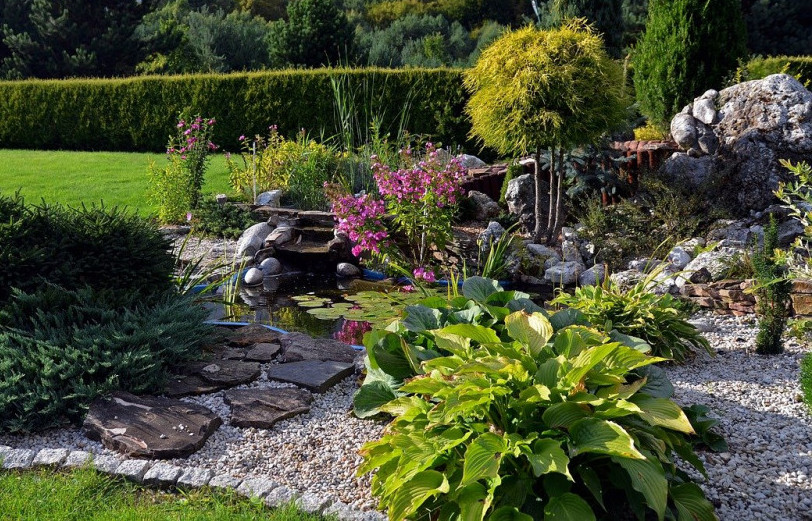
Building a rockery area in your garden can seem like a simple task at first…pile up some rocks…add a few plants…how hard can it be?! But without some thought to the design, you might end up with something less like a rock garden and more like a pile of rubble and weeds. Like many gardening endeavours, a bit of creativity can go a long way . Before gathering materials and getting stuck in, perhaps its worth sitting back and contemplating what kind of style and atmosphere you’d like to create. From the rocks themselves, to the growing medium and the plants, there are many options to consider. But having a cohesive theme in mind can help you create an attractive and inviting space that you can enjoy for years to come. Today we’re looking at three creative ideas to get you started…
1. Japanese Zen Garden
Japanese Zen gardens typically use a combination of rocks, water features and ornamental plants surrounded by an area of sand or gravel, which can be raked in order to represent ripples in water. Overall these beautiful, miniature landscapes are arranged in a way that imitates the essence of nature and are said to aid meditation. They’re quite easy to create and will bring a calming, peaceful little corner into your outdoor space.
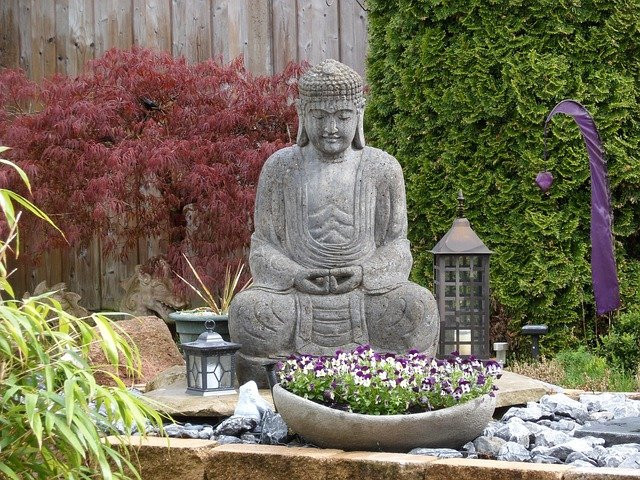
Quite often, a zen garden will be arranged around a central feature – such as a large feature rock, a sculpture or an ornamental tree or shrub. Therefore, when creating your own zen garden, perhaps have a think about what you’d like to use a central focal point. You don’t have to rush out and buy a miniature Buddha or Japanese maple tree, but obviously using something within that theme will help your zen garden to feel more authentic.
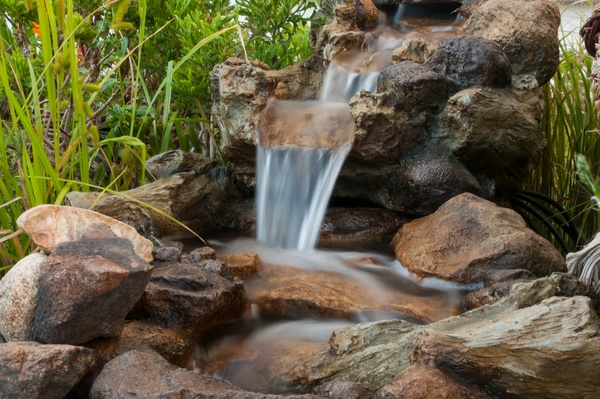
If you’re able to make use of a water feature within your zen garden, then you’ll also get to enjoy the gentle trickle of water to add to the sensory experience. Some garden centres will stock pre-made water features which are very easy to install and maintain. You might even find one that runs on a solar panel so no need to run an electricity supply.
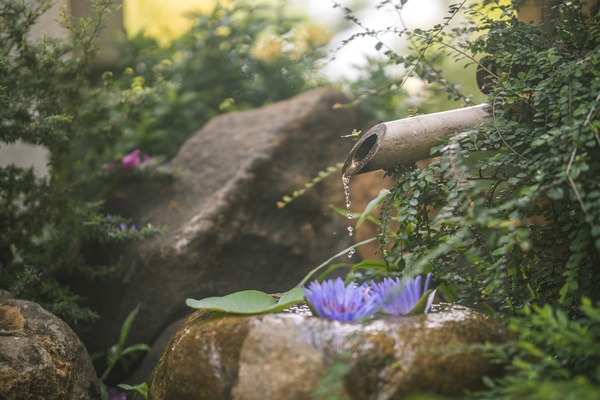
If you’re stuck for ideas (or budget), then you could just use a large rock as a centre-piece or even create your own sculpture by simply piling different sized pebbles on top of each other to form a tower. The main thing is to create some height that will provide a nice contrast to the flat bed that will surround it.
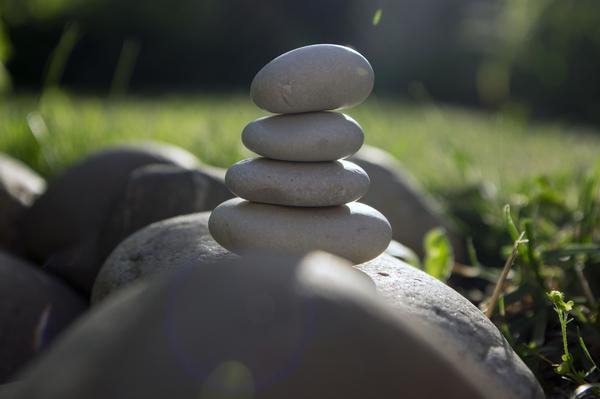
You can create a dry bed of sand or gravel around your centre-piece piece and you might even want to break this up into different areas using different types of stones. There aren’t really any hard rules to follow but if you just remember the idea of trying to recreate ripples in water and overall your zen garden should feel calm and uncluttered yet natural.
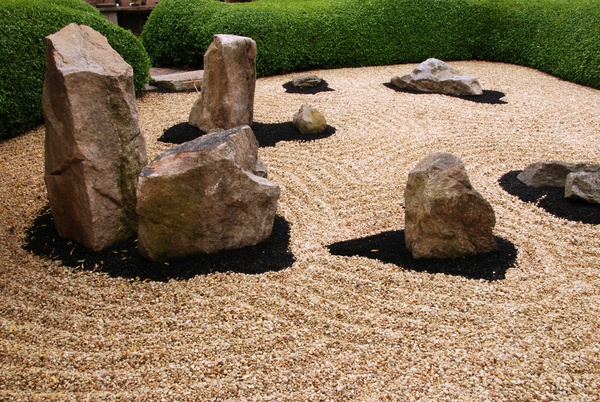
Of course, you might need some kind of border to stop your smaller stones escaping. You could surround the edge of your zen garden with larger rocks or pebbles or even place a row of rustic looking bricks around the perimeter. Another option would be to follow the edge of a curved lawn and set it slightly below the lawn edge.
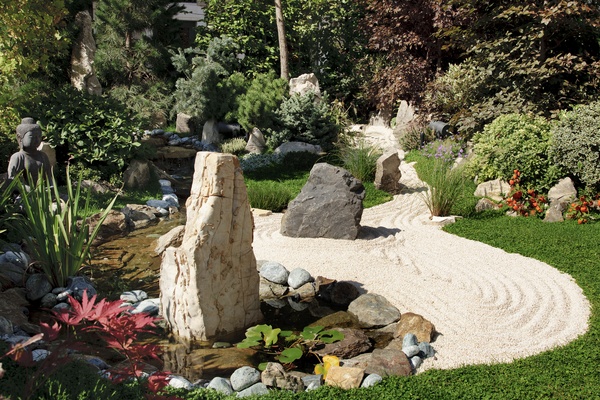
If you’d like to add some greenery and colour to your zen garden, there are lots of things that could work. Japanese Forest Grass grows in a compact tuft, is happy in the sun or shade and will create some gentle movement in the breeze. To add some colour, you could try Peonies, Chrysanthemums, Azaleas or Rhododendrons. If you have the space and budget, then you could even add an ornamental tree – the obvious one (and one of my favourites) would be a Japanese Maple.
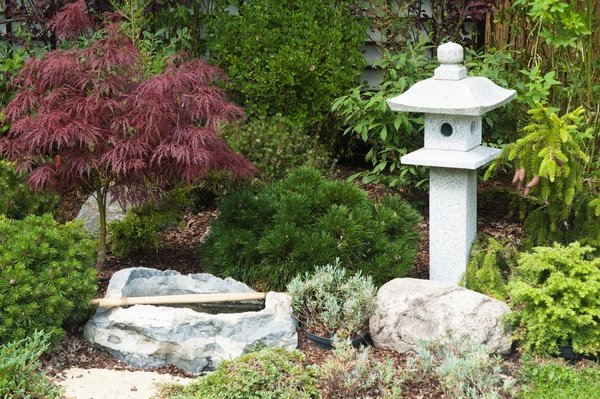
Bamboo would be another good addition, either as a standalone feature plant or used as screening to create a private, serene space – you’ll also get the gentle rustling sound as the majestic culms sway in the breeze. If space allows, you could try a Cherry Tree for stunning pink and white blossoms in spring, or Quince which can even be trained as a deciduous bonsai tree.
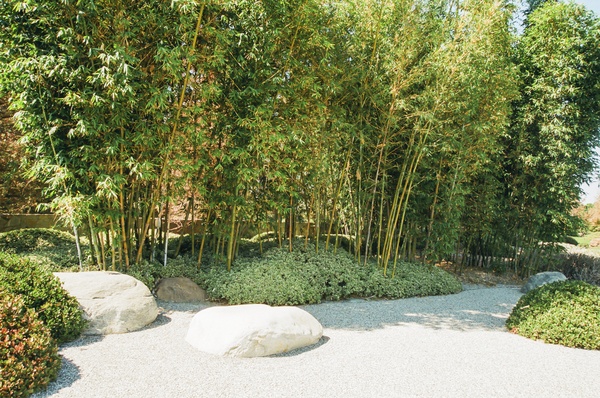
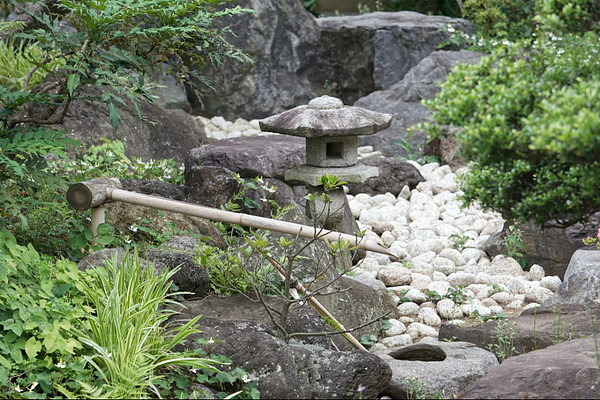
2. Alpine Rockery
The basis for an alpine rockery, will usually be an assortment of large, rugged stones or boulders. These might be arranged to create a winding slope – representing the natural cascade of a mountainous hillside.
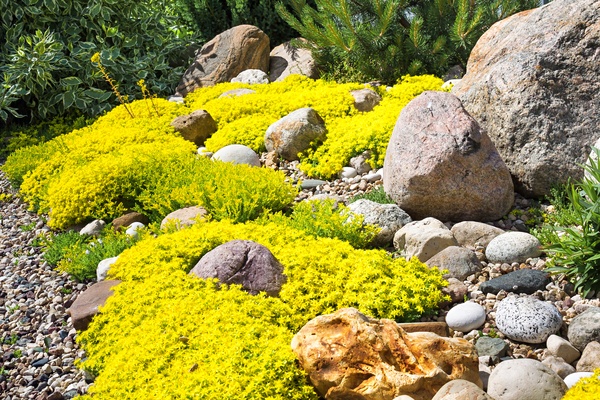
Rather than using all your best rocks at the bottom of the pile, you might want to build up some foundations first with old bricks, soil or rubble. In this way you can shape your miniature landscape a little first, before placing your finest looking alpine rocks. You can then add smaller rocks or pebbles to form what might be some kind of mountain track or dry river bed. If you’re feeling adventurous, you may even add a small pool with a dramatic waterfall.
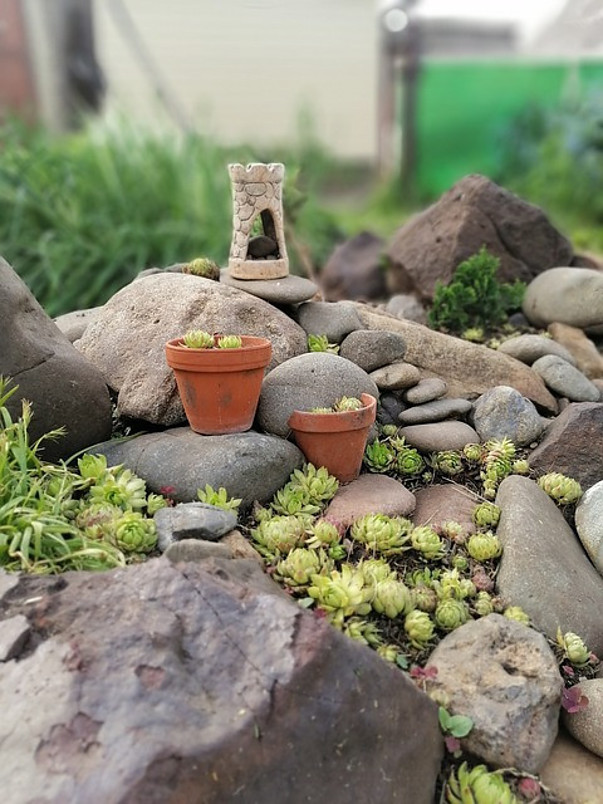
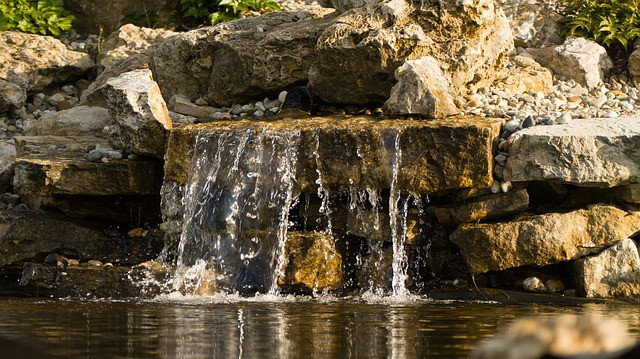
It’s fair to say that it can get expensive purchasing large rocks. If you’re on a tight budget then you could just lay a flat bed of smaller stones or gravel and concentrate on displaying of alpine plants.
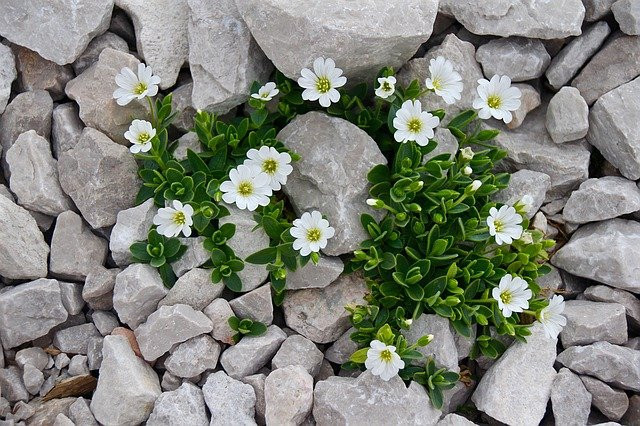
And when it comes to planting in your alpine garden, then there is some encouraging news – due the rather harsh environments from which they originate, alpine plants are generally quite resilient and well suited to even the most neglectful gardeners! Many varieties are hardy to cold temperatures, while also being fairly drought tolerant. However, most don’t like to be damp so make sure they’re in well drained soil or compost.
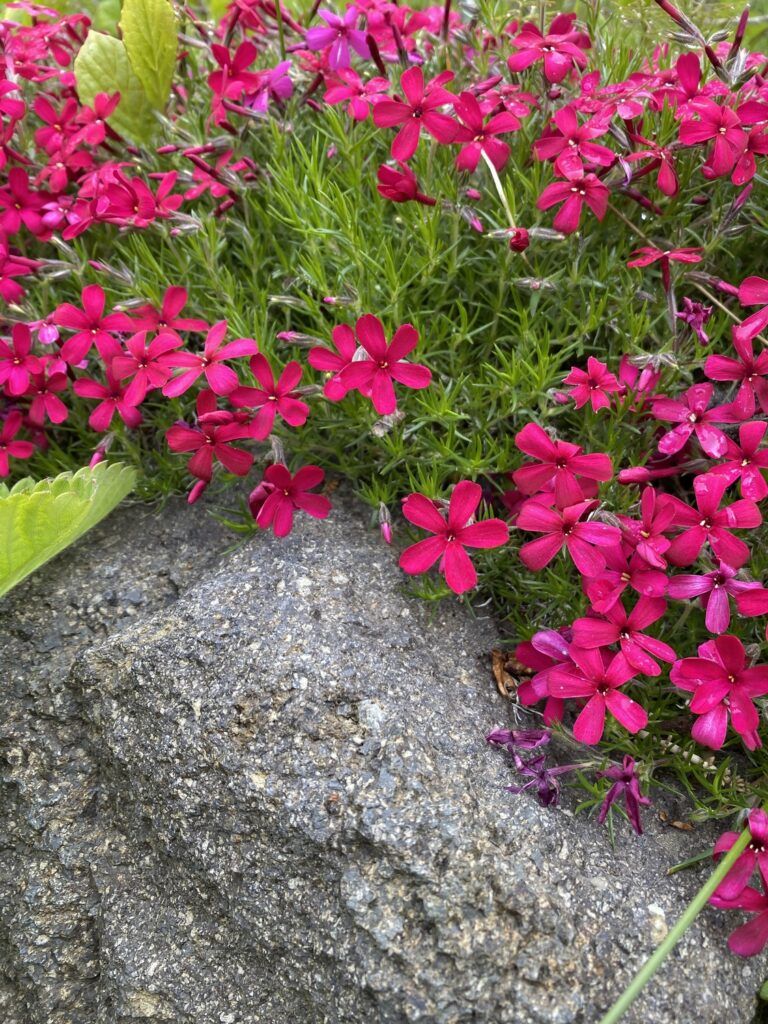
Planting up an alpine garden can be fun and introduce to you to some new plants that maybe you haven’t come across before. Mountain Avens (dryas octopetalia) are evergreen shrubs with stunning flowers in spring, followed by fluffy seed heads. Elf Rose (Saxifraga) is another nice option, which forms a neat mat of greenery and available with different coloured flowers.
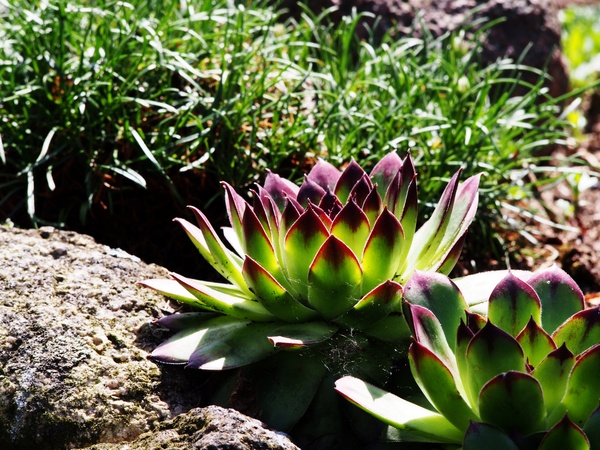
Sempervivum is an alpine succulent with stunning little rosettes of fleshy leaves which might be green or have a reddish tinge to them. Sedums are also popular or try Dianthus for a stunning display of pink or blue flowers.
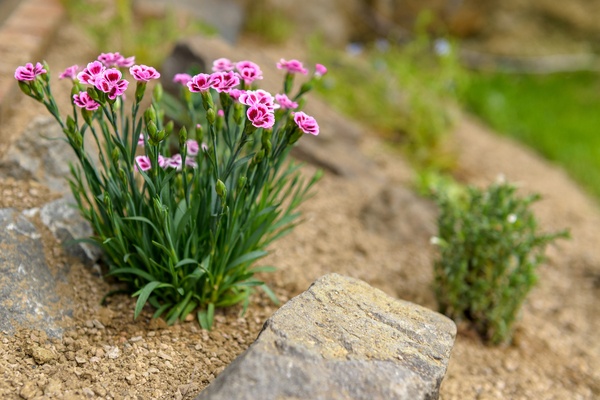
There really is a fantastic range of alpine plants to choose from and they’ll look fantastic nestled in the little spaces amongst your rock garden – bringing greenery, seasonal flowers and fragrances. Look out for sellers offering alpine plant collections, where you might get bunch of different varieties in a set. This is often a good way to fill up your alpine garden quickly and will usually offer a good balance of greenery and colour.
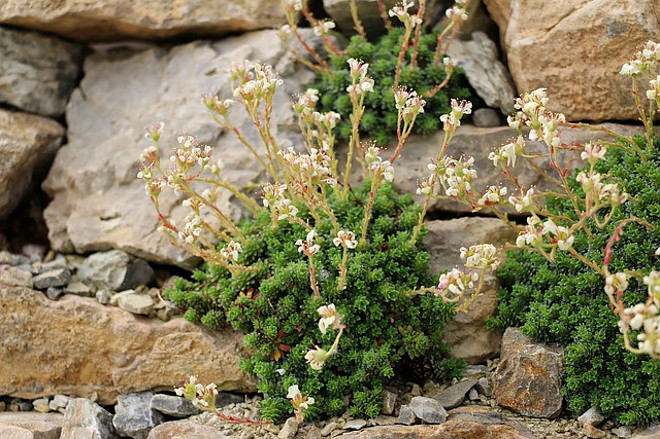
3. Crevice Garden
They might not be very common, but it seems that crevice gardens have gained some popularity in recent times. The main defining feature of these nature-friendly creations is that they’re constructed by setting slabs of rock vertically in the ground. This creates a series of narrow crevices, which can then be planted accordingly. Often this vertical arrangement of rocks means that there is much less growing space than more conventional rock gardens and use very little soil. However, this technique can have benefits and sometimes allow for a greater variety of plants.
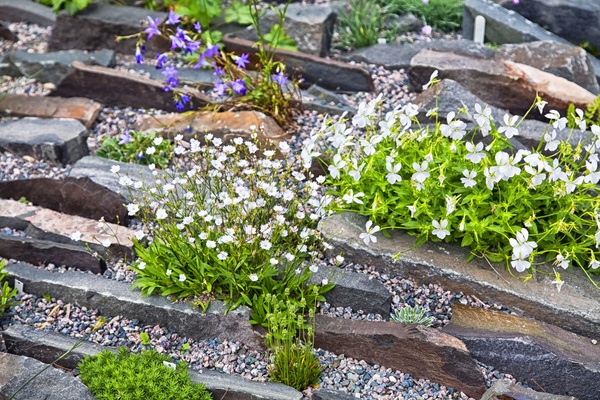
Crevice gardens often use grit or sand as the main growing medium and are well suited to plants that like good drainage and can make use of the deep narrow channels to set deep roots and become extra drought tolerant. Depending on the height and angle of your slabs, you can also make use of a variety of sun exposure within a single space – planting sun loving plants on the South face and shade tolerant plants on Northern face of each rock.

So, what kind of plants might you try in such a garden?
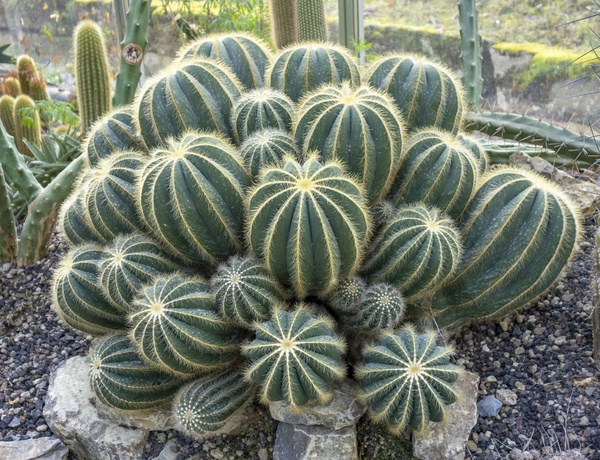
Believe it or not, there are hardy cacti and succulents that will do quite well outdoors in the UK climate. In some cooler areas you might need some protection for the cold of winter, but otherwise, these plants are quite a feasible option and can add a fantastic, exotic look to your garden. Try Parodia Magnifica (Ball Cactus) or Echeveria Secunda Var. Glauca with its stems of red or yellow flowers in summer.
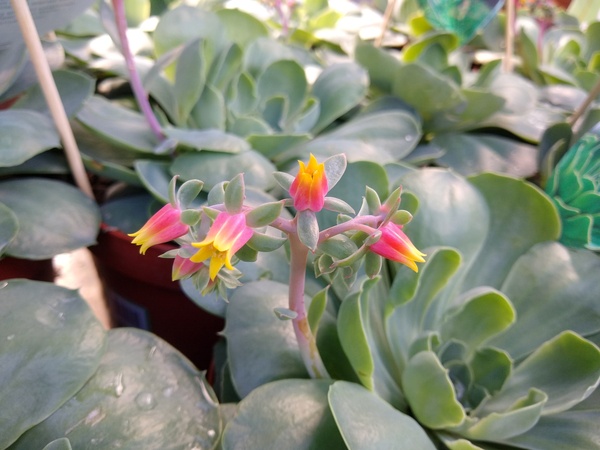
Agaves will add to the vibe – originating from the hot and arid areas of the Americas. There are a couple of species, Agave Americana and Agave Parryi, which should survive in warmer Southern or coastal UK areas.
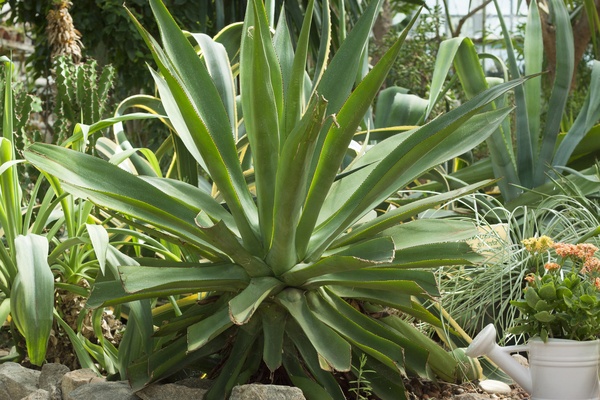
For some more greenery and bursts of colour, try Rock Roses, Rock Cress or even Cat Mint with its fragrant purple flowers.
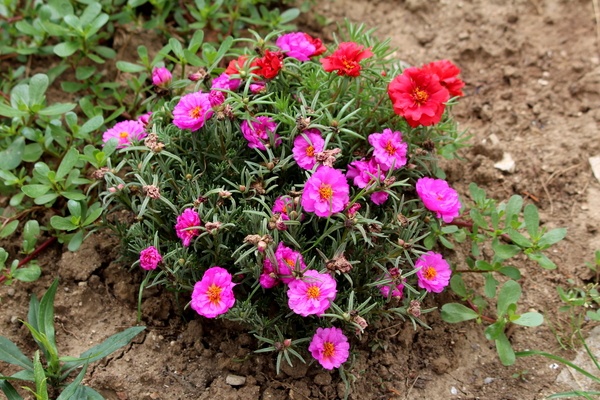
In general, crevice gardens can be easy to create and a fairy simple, cost effective option compared to other rockery ideas. They are also generally low maintenance and in some case, allow you to grow unusual, exotic plants that would struggle in a traditional growing bed.
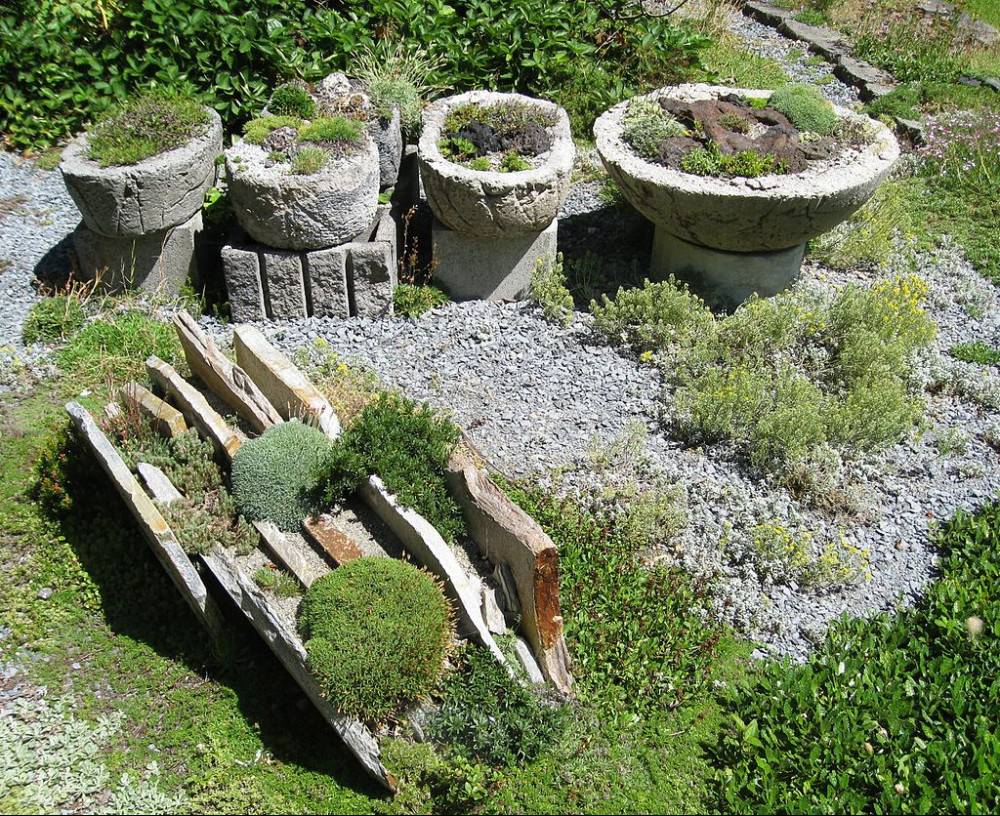
Final Thoughts
So there you have it, three great ideas to get you started with your own rock garden. Of course, there are no rules when it comes to creating your theme and you could try combining ideas together. If you’re a bit short on space or budget, then you don’t have to build a standalone rock garden. Perhaps you could just stylise one of your existing flower beds or even build a miniature rock garden in a container or raised bed.
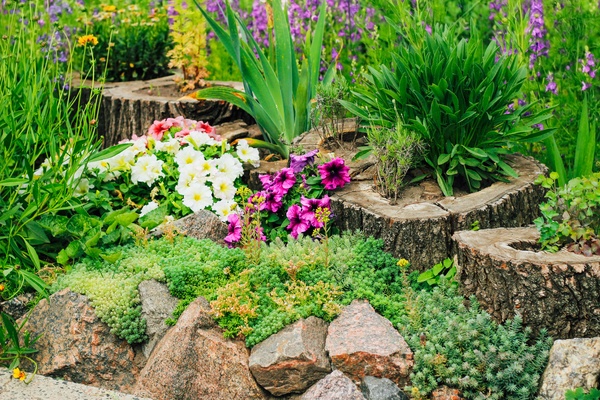
When it comes to plants, there will be certain species that will thrive in pretty much whatever type of rock garden you go for. As a starting point, ask your local supplier about alpine varieties and then see how far you can push the boundaries with more exotic types, based on the conditions you’ve created.
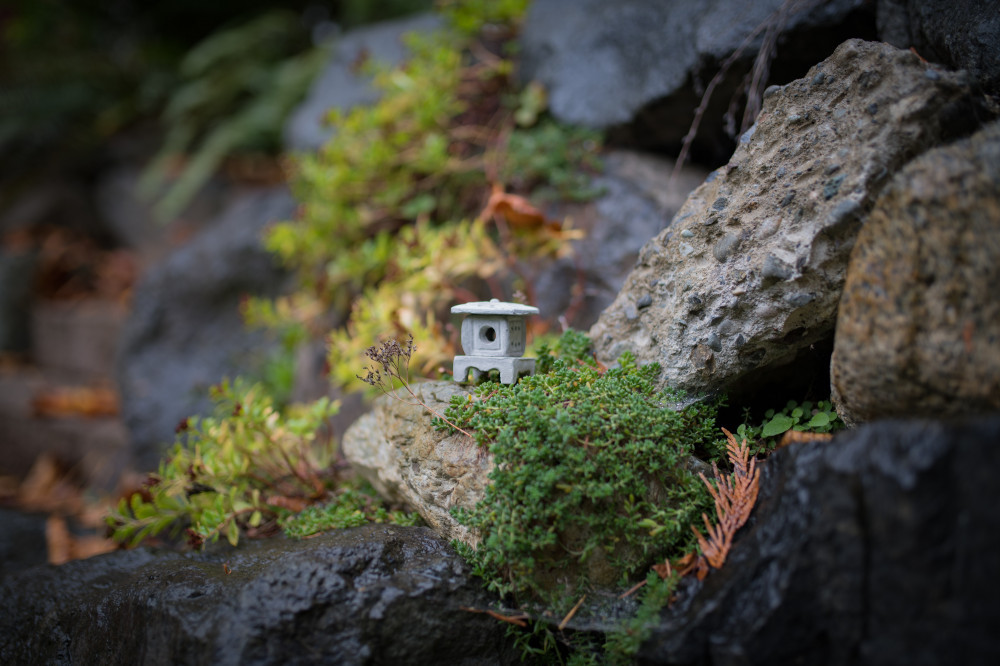
Have fun and please be careful – working with rocks can be a little hazardous so wear gloves and get help where needed. Let us know how you get on and please do share your thoughts and pics in the comments. Happy rock gardening!

I absolutely loved your example of a garden that was made with the zen concept in mind. That could really make things a lot more relaxing for us here and provide a great outdoor oasis for us to unwind around after a stressful day. I’ll go and look for any gravel providers that can get us a good supply of what we need to pull off this design.
Hi Afton, thanks for that and very pleased to hear that you’re inspired to create a zen-style rock garden! Best of luck with that and enjoy!